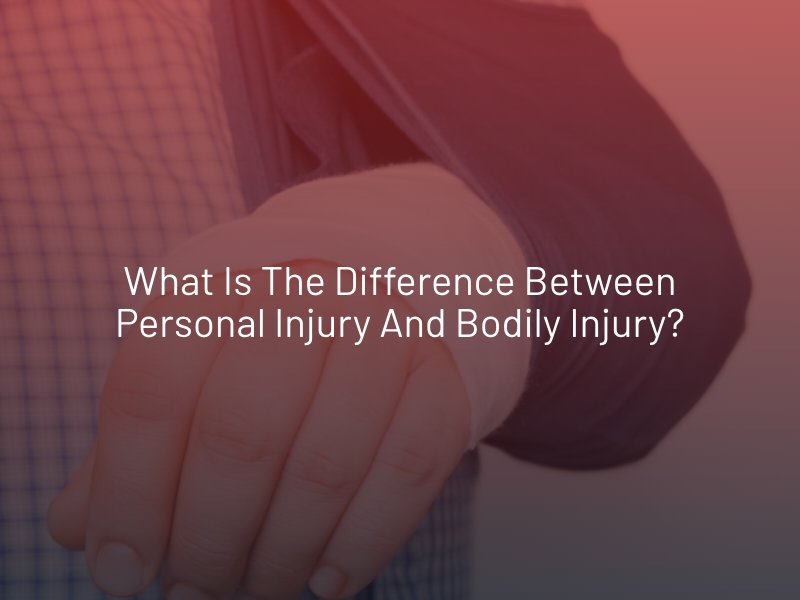What Is the Difference Between Personal Injury and Bodily Injury?
If you are filing an insurance claim or civil lawsuit after an accident caused by another party’s negligence, you have likely heard the terms personal injury and bodily injury. Although they sound similar, there are critical differences between the two.

The Definition of Personal Injury
“Personal injury” is a legal term for a type of civil action that allows a victim to recover damages due to an injury caused by another party. It is a much broader term than bodily injury in that it not only refers to a physical injury but also emotional distress or psychological conditions caused by the accident. To have grounds for a personal injury lawsuit, the injury must have been caused by another party’s negligent, reckless, or intentional actions.
What is Included in a Personal Injury Lawsuit
After a personal injury caused by another’s negligence, the victim can file a personal injury claim against the at-fault party’s insurer for damages. Damages refers to the compensation meant to reimburse a victim for their losses. However, if they cannot reach a fair settlement with the insurer, they have the right to file a personal injury lawsuit. To hold an at-fault party liable for damages, four elements of negligence must be proven:
- Duty of Care: The defendant (at-fault party) owed you a duty of care. (e.g., in a car accident case, the wrongful driver owed a duty to others on the road to follow traffic laws)
- Breach of Duty: The defendant breached their duty of care. (e.g., running a red light)
- Causation: The defendant’s breach of care directly caused your injuries. (e.g., if the defendant had stopped at the red light, they would not have caused the car accident which led to your injuries)
- Damages: The plaintiff (victim) suffered damages as a result of the defendant’s negligence. (e.g., medical bills, lost income, pain and suffering, etc.)
In court, a judge or jury will decide fault and the amount of damages you should be awarded.
The Definition of Bodily Injury
Bodily injury is most commonly heard as part of an insurance claim following a car accident. It does not refer to a type of insurance claim or grounds for a lawsuit but is used within them. Instead, it defines a category of physical damages that a victim sustains as a result of physical injuries sustained in a car accident. Nevada requires drivers to carry minimum auto insurance coverage of $25,000 for bodily injury per person and $50,000 per accident. Bodily injury is also often used in criminal court cases when referencing a victim’s injuries caused by a crime.
What is Included in a Bodily Injury Claim
When you suffer bodily injury in an accident, you can recover compensation from the at-fault party’s insurance company or your own, depending on your coverage. By filing a bodily injury claim, you can receive reimbursement for medical expenses, lost wages due caused by your injury, ongoing and future treatment costs, diminished earning capacity if you cannot make the same level of income as before the accident, and any other out-of-pocket expenses related to your injuries. Learn more about your legal options following an accident by contacting an experienced personal injury attorney in your area.